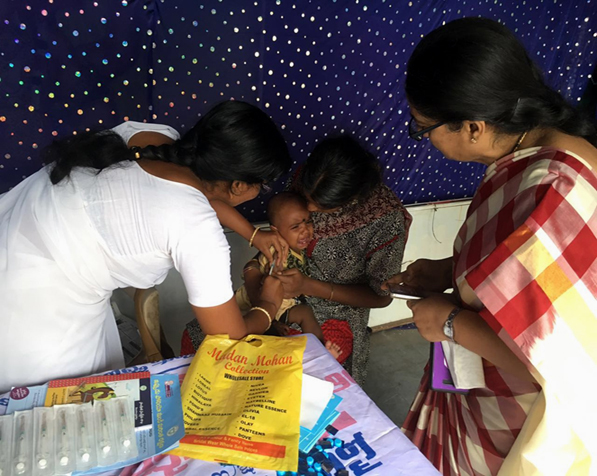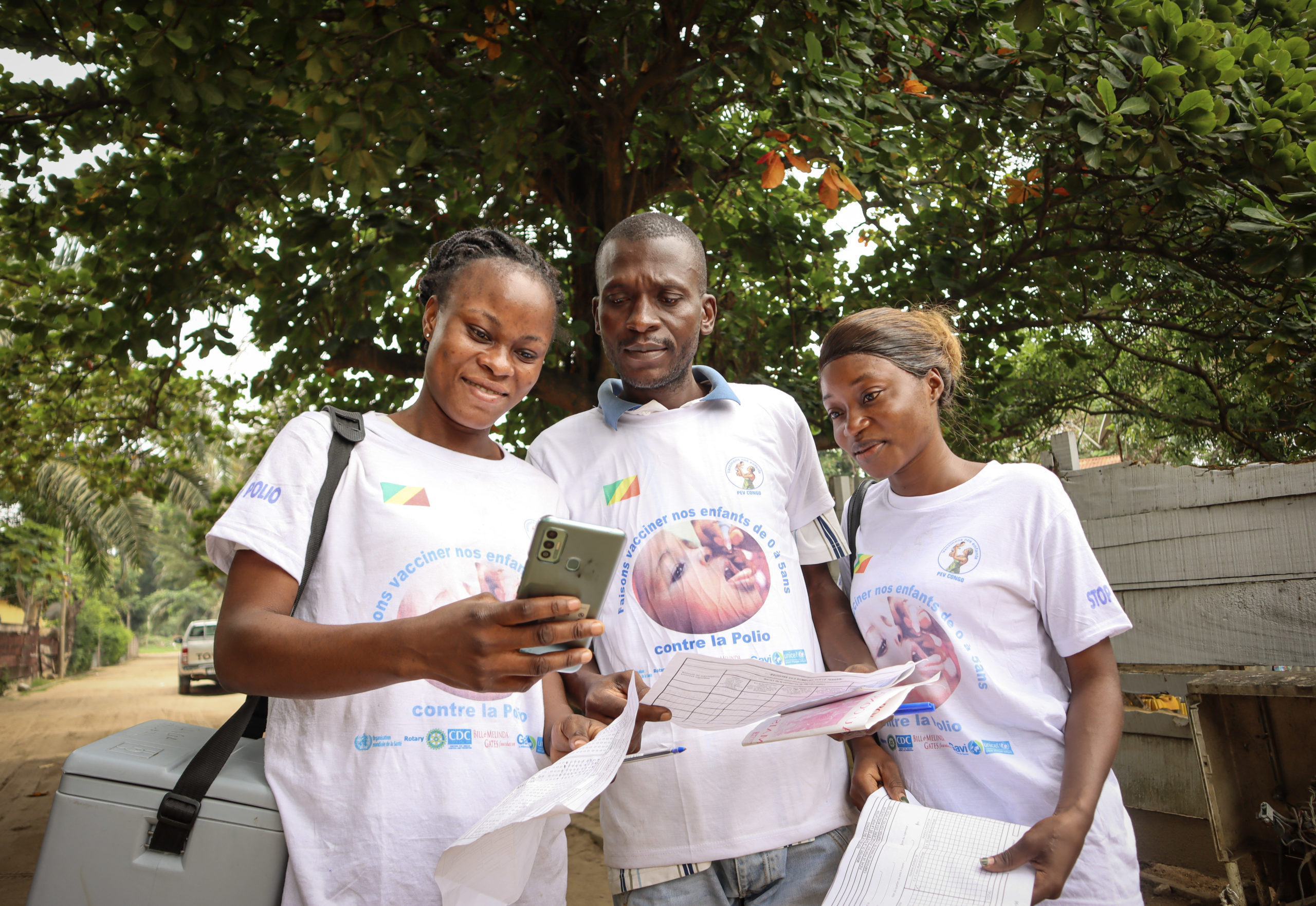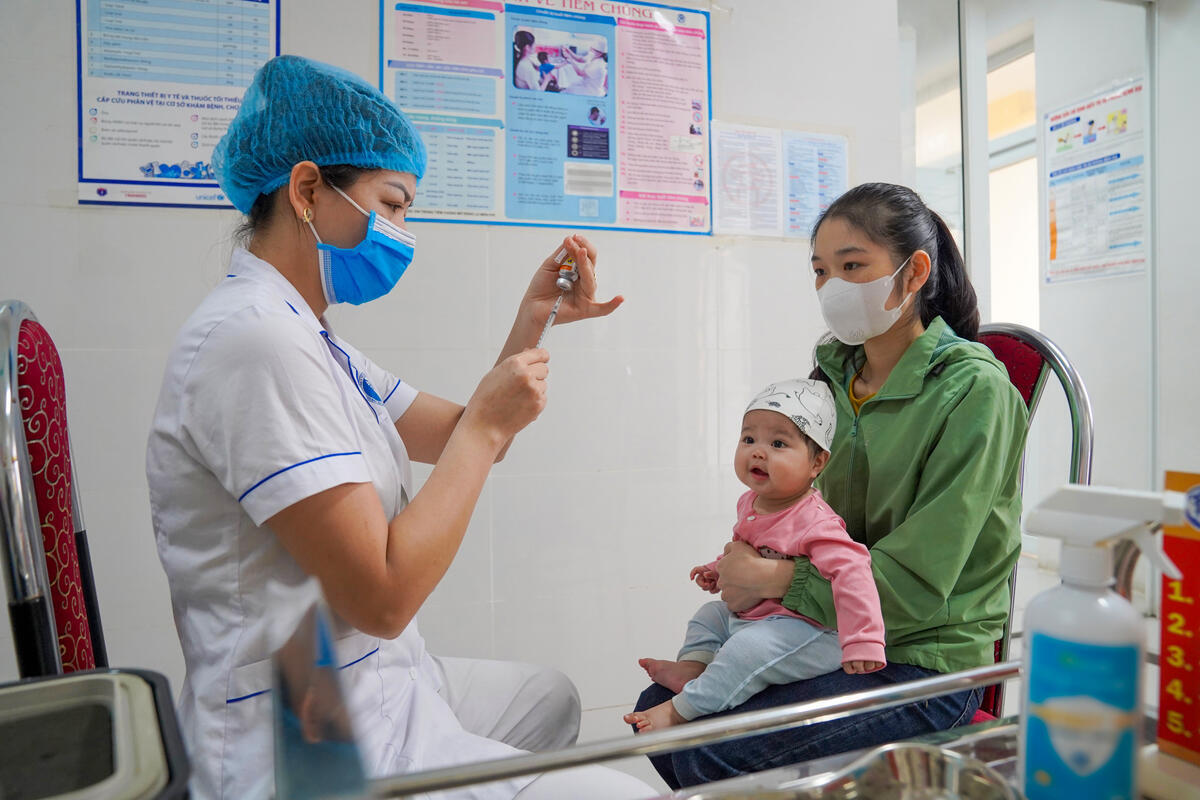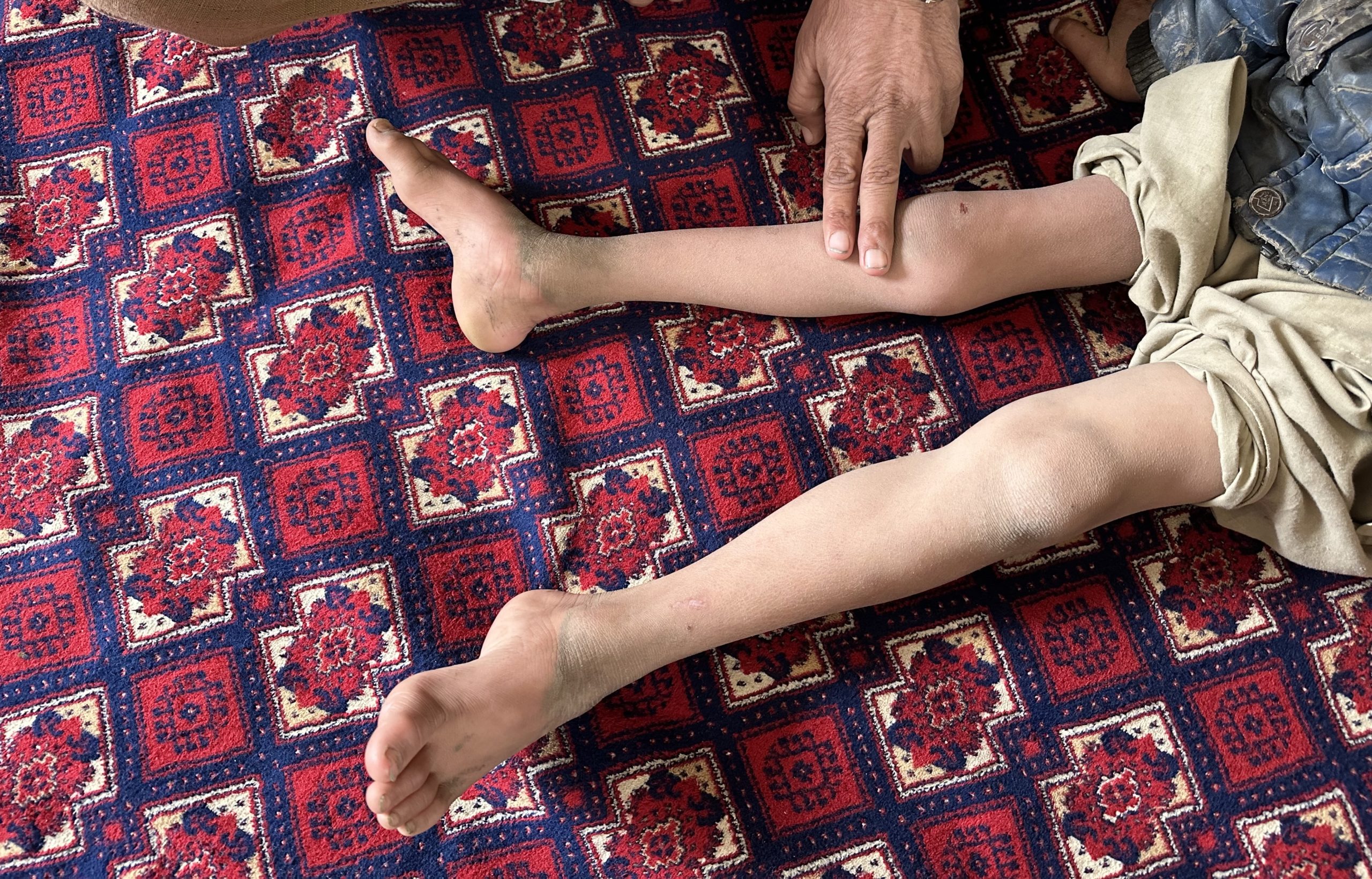
A new study published this month in the Journal of Infectious Diseases has shown that a single dose of fractional dose inactivated poliovirus vaccine (fIPV) boosts mucosal immunity to a similar degree as a full dose of IPV, in children previously immunized with oral polio vaccine (OPV). During the current IPV shortage, this vaccine is not recommended for outbreak response, however, if it is used, then this finding provides further evidence in support of fIPV rather than full dose IPV at a time of IPV global supply shortage.
The efficacy of fIPV in boosting humoral immunity (offering individual protection against paralytic disease) in comparison to full-dose IPV had already been established, and this dose-sparing approach for routine immunization programmes was subsequently recommended by the Strategic Advisory Group of Experts on immunization (SAGE). Thanks to an increasing number of countries adopting this approach, including Bangladesh, India, Nepal, Sri Lanka, Cuba and Ecuador, there have been significant improvements in the global supply of this vaccine.
These latest findings show that fIPV also has a significant role to play in outbreak response. Mucosal immunity is needed to interrupt person-to-person spread of the virus in a community, so is a critical factor in outbreak response. Used in conjunction with OPV, even a single dose of this formulation could now play a key role in such settings, by rapidly boosting mucosal immunity at a similar level to a full-dose IPV while using a fifth of the vaccine amount. This has clear benefits both on cost and supply.
“Globally, demand for IPV is high and the supply is constrained,” commented Dr Tahir Yousafzai from Aga Khan University in Karachi, Pakistan. “As polio eradication is gradually eliminating OPV, countries will eventually rely solely on IPV, further increasing demand. Fractional IPV can stretch the limited IPV supply and provide similar humoral and mucosal protection when compared to full-dose IPV in children vaccinated with OPV. In addition, it will play an important role in stopping poliovirus transmission, and hence help in the eradication of wild poliovirus and circulating vaccine-derived poliovirus.”
For the post-polio era, the Global Polio Eradication Initiative and its partners are continuing to explore new IPV approaches to ensure an affordable and sustainable supply following global polio eradication, including through the use of IPV vaccine manufactured from Sabin strains or non-infectious materials such as virus-like particles.
Additional information:
- Boosting of mucosal immunity after fractional-dose inactivated poliovirus vaccine, The Journal of Infectious Diseases
- Editorial commentary: Role of fractional-dose IPV in halting polio transmission – finding the missing piece for global polio eradication, Mohammad Tahir Yousafzai, Aga Khan University, Karachi, Pakistan
- Research and innovation in polio eradication
- Fractional IPV dosage



